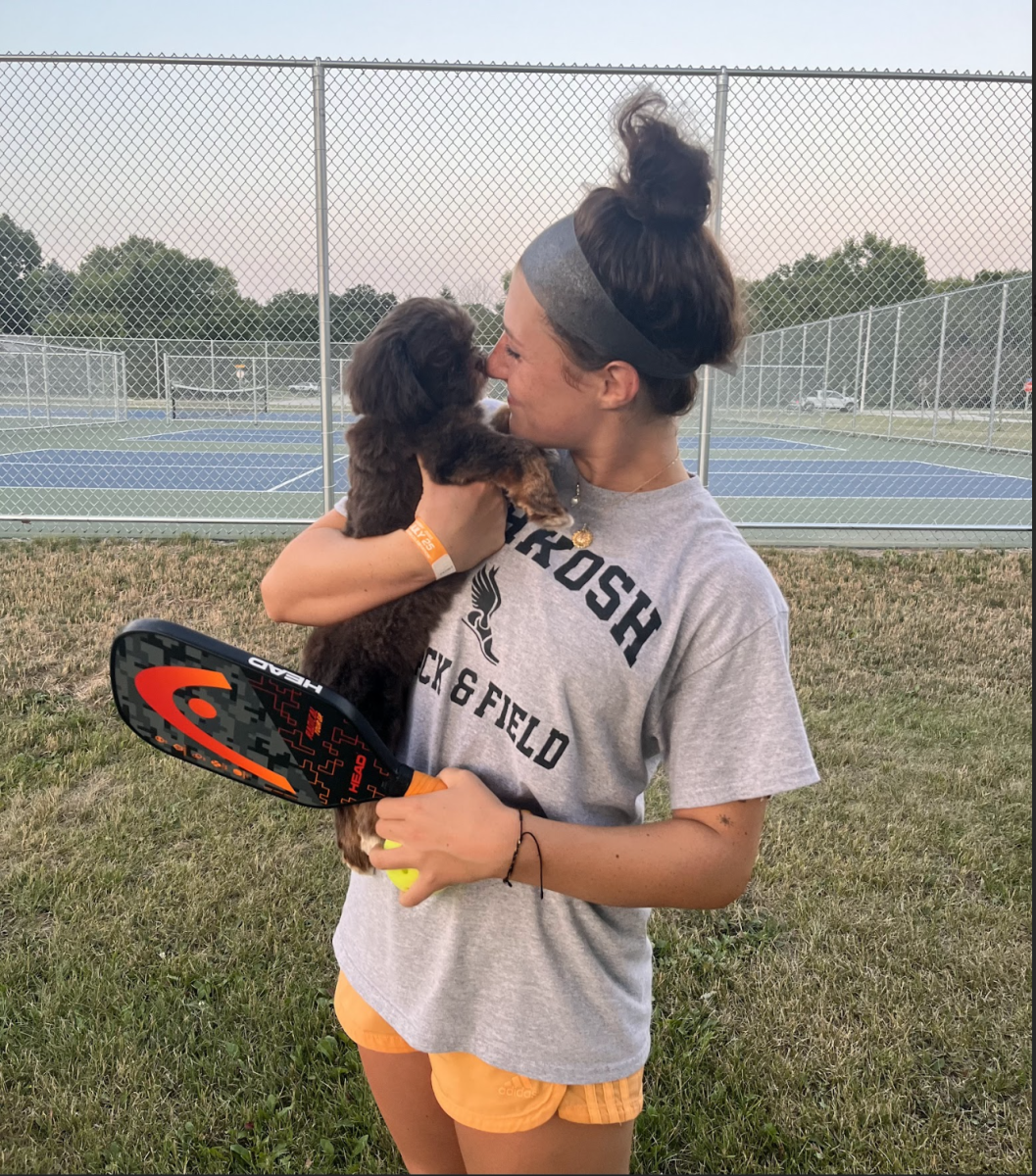College kids have to be out of their minds to think that owning a dog while in college is a good idea.
I guess I’m out of my mind.
It hit me this summer that, once again, I would have to leave my beloved dog at home and haul my things back to college. He was technically my dog, he just liked my dad more.
I have accepted the fact that I will always miss my dog more than he will miss me.
So, I got my own dog.
I realize that I am a full-time student and that this is a huge undertaking.
Did I do any research on whether or not this was even a remotely good idea? No, not at all.
Do I regret it? No.
Have I had one uninterrupted night of sleep in the past month? Also no.
But just because I decided to get a pet in college doesn’t make it the best idea for everyone. Pets are a lot of responsibility, and based on some people I’ve met in college, not everyone is up for that level of responsibility.
If you can’t afford to spend money on groceries for yourself, you probably won’t be able to afford groceries for your dog either.
Dogs are real, living creatures. I know this isn’t a groundbreaking epiphany, but owning a dog makes you look at things differently. Your world now revolves around this little domesticated creature.
Now we eat breakfast together, watch movies together and wake up at the same time in the middle of the night to go to the bathroom.
Dogs go through developmental stages just like humans. It’s important, and helpful in the long run, to know what these stages are and what their behavior will be during these time periods.
Most dogs are adopted around the age of 7 to 12 weeks. I adopted Gus when he was 16 weeks old. Puppies become completely aware of their surroundings and have full control over their senses in this stage. The Regina Humane Society referred to this stage as the “socialization period” (3 to 12 weeks).
It is crucial to introduce your puppy to as many new dogs, people, noises, places and objects as humanly possible during this time. It’s also important to crate train them and teach them independence so that separation anxiety doesn’t develop in their older years.
It’s also important to make sure that your home is puppy-proofed before you let your new puppy have any freedoms. Just as you would want to protect a baby from eating inanimate objects left on the ground, the same is expected for your puppy.
Following the socialization period is the “testing period” (3-6 months). This is when your puppy pushes every possible limit and can begin to stir up some regret in their human. It’s important to keep an eye on your puppy and devote lots of time toward training them to be the kind of dog you want in the future. It’s the time to correct bad habits and make good new ones.
Another thing to think about is vetting your dog. Most places you adopt your dog from will give you the whole rundown on what shots and vaccinations are required at what age, but I’m here to tell you how important this is. Do not brush over this information. Your dog needs to be properly vetted.
Make sure that wherever you are living is pet friendly! Do not go against the rules of your landlord; it is a war that you will not win. Instead, you’ll end up with a hefty fine and probably an eviction notice.
And always remember to ask for pup cups at Starbucks when you go. This is the most important takeaway from this entire spiel.
But seriously, put a lot of thought into getting a dog before you actually do. It’s a big commitment. I would normally advise college kids to not get a pet, but now I would just be a hypocrite.
Be prepared to have some added costs, restless nights, stressful training moments, and a best friend for some of your biggest moments of life.







